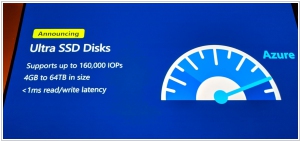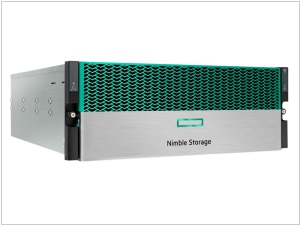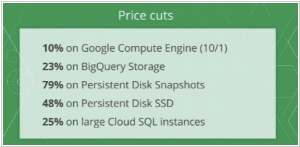SSD cloud storage
Updated: August 01, 2023
SSD cloud storage is a cutting-edge storage solution that combines the benefits of solid-state drives (SSDs) with the flexibility and scalability of cloud storage. Unlike traditional hard disk drives (HDDs), SSDs use flash memory to store data, resulting in faster data access and retrieval times, improved performance, and reduced latency. By deploying SSD technology in cloud storage, users can experience faster file uploads, downloads, and data transfer, making it ideal for applications and workloads that demand high-speed performance, such as databases, web hosting, and real-time analytics. Additionally, SSD cloud storage offers the advantages of cloud computing, such as on-demand resource provisioning, pay-as-you-go pricing, and data redundancy for increased reliability and data protection. As businesses and individuals increasingly require storage solutions that can accommodate their growing data needs while delivering exceptional performance, SSD cloud storage continues to gain popularity as an efficient, reliable, and high-performance storage option.
See also: Top 10 Public Cloud Platforms
See also: Top 10 Public Cloud Platforms
2018. Microsoft Azure gets new high-performance storage options

Microsoft is introducing a range of new storage options for Microsoft Azure, with a particular focus on scenarios that require high disk performance. One notable addition is the public preview of Azure Ultra SSD Managed Disks. These drives are designed to deliver extremely low latency, making them well-suited for workloads that demand quick response times. Additionally, Standard SSD Managed Disks have transitioned from preview to general availability within just three months. Moreover, Azure now offers expanded storage capacities of 8, 16, and 32 TB across all storage tiers, including Premium and Standard SSD, as well as Standard HDD. Another new addition is Azure Premium Files, which is currently in the preview stage. This service is also SSD-based and aims to provide improved throughput and reduced latency for SMB operations within Azure Files, a familiar cloud storage solution that uses the standard SMB protocol.
2017. AWS offers a virtual machine with over 4TB of memory

Amazon's AWS has introduced its largest EC2 machine yet, the x1e.32xlarge instance, boasting an impressive 4.19TB of RAM. This represents a significant upgrade from the previous largest EC2 instance, which offered just over 2TB of memory. These machines are equipped with quad-socket Intel Xeon processors operating at 2.3 GHz, up to 25 Gbps of network bandwidth, and two 1,920GB SSDs. It is evident that only a select few applications require this level of memory capacity. Consequently, these instances have obtained certification for running SAP's HANA in-memory database and its associated tools, with SAP offering direct support for deploying these applications on these instances. It's worth mentioning that Microsoft Azure's largest memory-optimized machine currently reaches just over 2TB of RAM, while Google's maximum memory capacity caps at 416GB.
2017. HPE to acquire storage virtualization company Nimble Storage

Hewlett Packard Enterprise (HPE) has completed the acquisition of Nimble Storage, a leading provider of predictive all-flash and hybrid-flash storage solutions. Nimble's predictive flash offerings, designed for the entry to midrange segments, complement HPE's existing scalable midrange to high-end 3PAR solutions and cost-effective MSA products. This strategic acquisition enables HPE to offer a comprehensive range of cutting-edge flash storage solutions to customers across all market segments. Nimble's entry to midrange flash storage solutions are known for their exceptional application performance, supported by an intelligent, predictive analytics engine that enhances the customer experience. This advanced analytics platform not only focuses on storage but also analyzes performance issues throughout the entire data path, from applications to the storage array. By proactively identifying and resolving potential issues before they arise, Nimble ensures a simplified and efficient storage environment. Furthermore, Nimble has recently introduced multicloud storage services, which seamlessly combine the strengths of on-premises and public cloud storage capabilities. These services are specifically designed for Hybrid IT deployments, providing customers with the flexibility and benefits of both environments. With the integration of Nimble Storage, HPE strengthens its position as a leading provider of innovative storage solutions, delivering enhanced performance, reliability, and versatility to meet the evolving needs of businesses in today's digital landscape.
2014. Google Cloud Platform slashes prices, adds containers, VPN support

During the recent Google Cloud Platform conference, Google announced several new products and updates for its Google Cloud Platform. One of the highlights is the introduction of Google Container Engine, a service that enables businesses to transition from managing application components on individual virtual machines to utilizing portable Docker containers scheduled within a managed compute cluster. Additionally, App Engine now includes auto-scaling support, Cloud SDK integration, and compatibility with runtimes built on Docker containers. Google also unveiled forthcoming features such as carrier interconnect in partnership with providers like Verizon and VPN support, set to launch in early 2015. These additions allow users to retain certain apps and data on-premises while utilizing the public cloud for other tasks. Moreover, Google has implemented significant price reductions for its Cloud Platform, benefiting businesses of all sizes. In addition to a 10% price reduction last month, the latest cuts include nearly 25% reduction in BigQuery Storage, around 80% reduction in PD Snapshots, nearly 50% reduction in Disk SSD storage, and a 25% drop in the price of large Cloud SQL instances. These pricing adjustments aim to enhance the satisfaction of both large-scale and small-scale business partners.

